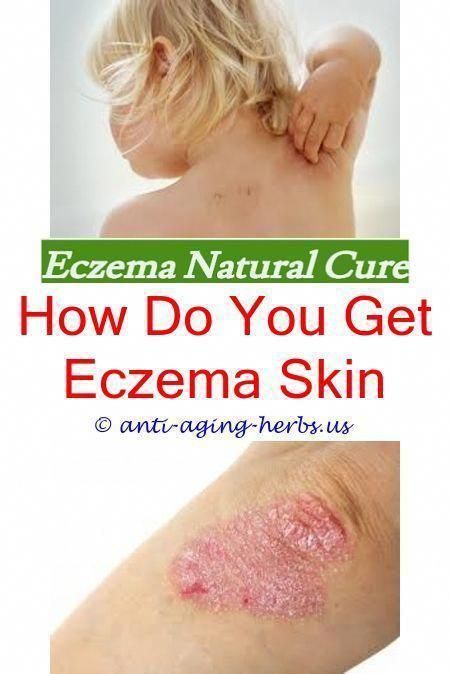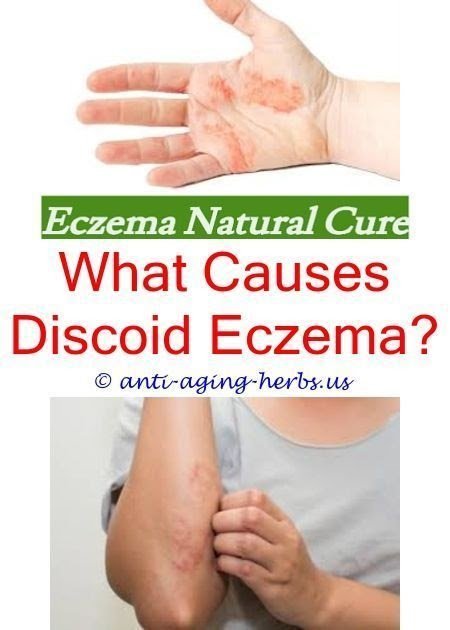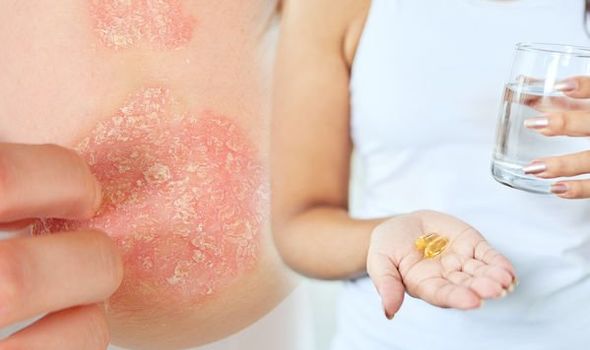Avoiding Atopic Dermatitis Triggers
Everyoneâs eczema is different. Common triggers include stress, sweat, certain chemicals, dust, and pollen. Some foods can trigger flares in infants and children. A symptom diary can help you track your or your childâs triggers so you know what to avoid.
Try these tips to limit contact with triggers:
- Protect your skin, especially when the weather is cold and dry.
- Be careful with soaps, shampoos, and other commercial skin care items. Read the labels carefully.
- Rinse laundry twice to remove detergent residue.
View a slideshow to see top eczema triggers to avoid.
Gentle Soaps And Detergents
Laundry detergent can contain harsh chemicals that aggravate eczema.
Many body washes and cleansers contain detergents, which help provide a soapy lather. Detergents and other lathering agents can dry out the skin, especially in people with eczema.
Bar soaps can also be harsh on the skin because of their alkalinity.
Try using a gentle, no-lather, fragrance-free cleanser. Avoid products with rough particles for scrubbing or exfoliating, as these can further irritate the skin.
Many people with eczema also find that switching to a more gentle, fragrance- or color-free laundry detergent can help improve symptoms.
Additionally, try skipping fabric softener, which lingers on clothes and often contains fragrances and chemicals that can irritate the skin.
Sitting next to a fireplace or near a furnace may feel good, but it can worsen eczema symptoms. The hot, dry air can dehydrate the skin and aggravate the itchiness of eczema.
Use a humidifier during the dry winter months and avoid getting too close to heaters and fireplaces.
Medicines For Atopic Dermatitis
If your doctor decides you need meds to treat your eczema, those may include:
Hydrocortisone. Over-the-counter cream or ointment versions of it may help mild eczema. If yours is severe, you may need a prescription dose.
Antihistamines. Ones you take by mouth are available over-the-counter and may help relieve symptoms. Some of these make you drowsy, but others donât.
Corticosteroids. Your doctor may prescribe these if other treatments donât work. Always follow your doctor’s directions when taking steroids by mouth.
Drugs that work on your immune system. Your doctor may consider these medicines — such as azathioprine, cyclosporine, or methotrexate — if other treatments donât help. There are also prescription creams and ointments that treat eczema by controlling inflammation and reducing immune system reactions. Examples include pimecrolimus , which is a cream, and crisaborole and tacrolimus , which are ointments. You should only use these for a short time if other treatments don’t work — and you should never use them on kids younger than 2, according to the FDA.
Injectables. Dupilumab is an injectable medicine for moderate to severe eczema. It works by controlling the bodyâs inflammatory response. This medicine is given every 2 weeks as an injection and should only be used by people 12 and older.
Prescription-strength moisturizers. These support the skinâs barrier.
Find out which eczema treatment is right for you.
Recommended Reading: How Does One Develop Eczema
What Types Of Moisturizers Are Used To Treat Eczema
When considering a moisturizer, the first thing to look for is how much oil it contains. The more oil in a moisturizer, the better it is for treating eczema. If your skin feels greasy or sticky after applying a moisturizer, that means the product likely contains plenty of oil.
Look for products that do not contain added ingredients such as fragrances, dyes or alcohols that can irritate the skin.
Living With Atopic Dermatitis

The following steps can help manage atopic dermatitis:
- Avoid triggers
- Take brief baths or showers using lukewarm water.
- Practice good skin care.
- Dont use harsh soaps. Ask your healthcare provider to recommend a brand.
- Dress in light clothes. Sweating can make atopic dermatitis worse.
- Use a good moisturizer at least once a day. Ask your healthcare provider to recommend a brand.
- Avoid scratching the affected area.
- Minimize stress.
- Make lifestyle changes that prevent flare-ups.
- Avoid skin products that have fragrances and dyes
Recommended Reading: Best Diapers For Babies With Eczema
Seattle Children’s Urgent Care Locations
If your childâs illness or injury is life-threatening, call 911.
Should I Use A Product That Earned The National Eczema Foundation Seal Of Approval
The National Eczema Association created the Seal of Approval acceptance program to help sensitive-skinned consumers properly select skincare.
The NEA Seal of Approval criteria includes a list of ingredients that are known for causing irritation, Dr. Mack explains. The Seal of Approval review panel evaluates ingredient and formulation data. Lastly, the Seal of Acceptance makes the products ideal for sensitive skin types easily identifiable.
Read Also: How To Treat Contact Eczema
Is Eczema Cream Reputable Or Are There Any Warnings About Eczema Cream On The Internet
Eczema creams are becoming increasingly popular among consumers due to the numerous skin advantages they provide. We found no relevant medical precautions while researching and producing this article. This cream should only be used if you have significant or minor skin problems. However, if you experience any issues after doing this, contact your doctor at once.
Other Topical Medication For Eczema
Topical calcineurin inhibitors are another category of prescription medication for eczema that includes Protopic and Elidel .
TCIs don’t contain steroids. Instead, they control inflammation and reduce eczema flare-ups by suppressing the immune system.
Though TCIs don’t cause the same side effects as topical corticosteroids, patients should only use them for short periods of time. A boxed warning alerts patients to the possible cancer risk associated with these drugs.
PDE4 inhibitors, a new class of topical drugs for eczema, work by blocking an enzyme called phosphodiesterase 4 from producing too much inflammation in the body. There is currently only one PDE4 inhibitor on the market: Eucrisa , which was approved by the U.S. Food and Drug Administration in 2016.
Don’t Miss: What Is The Best Eczema Cream For Toddlers
Natural Treatments At Home
Aside from moisturizing your skin, some natural treatments may help heal your skin.
Oatmeal baths are one type of natural treatment that can soothe the itchiness and discomfort of eczema rashes. Be sure to use lukewarm water and follow up with a moisturizer immediately after.
Theres some evidence that both probiotics and prebiotics may stabilize your microbiome to help treat inflammation. However, more research is needed to support this approach in eczema treatment.
Yoga Qigong And Tai Chi
Yoga, Qigong and Tai Chi are all examples of ancient mind-body practices that combine breathing with body movement and meditation to attain focus, clarity and relaxation. Some individuals with eczema believe these gentle exercises have helped them reduce stress, lower inflammation and distract from itch.
Tai Chi and Qigong are martial art forms that combine graceful movements with diaphragmatic breathing to help circulate vital energy called Qi in order to achieve balance between the body and mind. Yoga is rooted in Ayurveda and based on a Hindu philosophy that combines deep, slow breathing with a series of poses to help achieve balance, focus and inner peace.
Also Check: What Helps Eczema Stop Itching
General Tips For Coping With Eczema
Other tips to manage your eczema include:
- Keep your fingernails short longer nails are more likely to injure your skin when you scratch.
- If the water in your area is hard or alkaline, consider installing a water-softening device.
- Swim in the sea in warm weather whenever you can seawater is known to reduce the symptoms of eczema.
- Use sun exposure for limited periods for example, when swimming at the beach. This can help relieve eczema symptoms. But be aware that ultraviolet radiation is a risk factor for skin cancer and premature ageing of the skin. Also, if sun exposure causes overheating, this can also aggravate eczema.
Food Allergy And Eczema Flare

- Food allergies are a factor in 30% of young children with severe eczema. This factor is mainly seen in babies.
- The main allergic foods are cow’s milk and eggs.
- The main symptoms are increased skin redness and itching. Some parents report these symptoms start during or soon after the feeding.
- The eczema becomes easier to control if you avoid the allergic food.
Read Also: Get Rid Of Eczema Forever
How Is Phototherapy Used To Treat Eczema
Nearly 70 percent of patients who are treated with phototherapy have positive results, but its important to note that this treatment is not for everybody.
It is important for the doctor to determine what type of UV light is right for you in order to time the treatments and avoid risks to your health. The amount of light exposure is timed and increased as treatment progresses.
Some areas may not have phototherapy readily available and accessible. Talk with your doctor. A trip to the tanning bed is not a replacement for phototherapy.
What Causes Eczema
Eczema is caused by a combination of immune system activation, genetics, environmental triggers and stress.
- Your immune system. If you have eczema, your immune system overreacts to small irritants or allergens. This overreaction can inflame your skin.
- Your genetics. Youre more likely to have eczema if there is a history of dermatitis in your family. Youre also at a higher risk if theres a history of asthma, hay fever and/or allergens. Allergens are substances like pollen, pet hair or foods that trigger an allergic reaction. Also, there might be a change in your genes that control a protein that helps your body maintain healthy skin. Without normal levels of that protein, your skin will not be completely healthy.
- Your environment. There is a lot in your environment that can irritate your skin. Some examples include exposure to tobacco smoke, air pollutants, harsh soaps, fabrics such as wool and some skin products. Low humidity can cause your skin to become dry and itchy. Heat and high humidity can cause sweating and that can make the itchiness even worse.
- Your stress. Your stress levels can cause or worsen your eczema. There are mental/emotional signs of stress and physical signs of stress. They include:
Mental/emotional signs:
Notice that diabetes is not included in this list.
You May Like: Best Probiotic Strain For Eczema
How To Use It
People can buy aloe vera gel in health stores or online, or they can purchase an aloe vera plant and use the gel directly from its leaves.
Individuals should aim to use aloe gel products with few ingredients others can contain preservatives, alcohol, fragrances, and colors, which can irritate sensitive skin. Additionally, alcohol and other drying ingredients could make eczema worse.
However, start with a small amount of gel to check for skin sensitivity, as sometimes, aloe vera can cause burning or stinging. However, it is generally safe and effective for adults and children.
Natural Eczema Treatment: 13 Home Remedies For Eczema
May 30, 2017
Is your skin red, dry, scaly and extremely itchy? Have you been diagnosed with eczema? The skin condition eczema is believed to affect over 30 million Americans. So, what is eczema? In fact, eczema isnt a single condition it is actually a group of skin conditions that includes atopic dermatitis, contact dermatitis, dyshidrotic eczema, hand eczema, neurodermatitis, nummular eczema and stasis dermatitis. Finding a soothing, natural eczema treatment can be life-changing for those suffering from this frustrating condition.
Eczema typically first appears in very young children with research finding that 65 percent of cases occur before infants hit their first birthday, and 90 percent of those affected have their first cases before they turn 5 years old. Of further concern is that eczema in children is becoming more and more common. Diseases eczema can resemble include psoriasis, rosacea and dermatitis, but its a different condition.
A study conducted by the Department of Pediatrics at Cincinnati Childrens Hospital Medical Center found that 39 percent of Caucasian children develop eczema by 3 years old. Interestingly, this same study found children that have a dog in the home are significantly less likely to develop eczema at any age.
Don’t Miss: Milk Alternatives For Toddlers With Eczema
Cerave Therapeutic Hand Cream $1049
This formulation contains dimethicone, ceramides, hyaluronic acid and ceramides. All of the above ingredients help to lock in hydration and improve the functionality of the skin barrier, Dr. Mack said. I use this personally after hand washing multiple times a day the nongreasy formula makes compliance easy.
What Do I Need To Know About Topical Corticosteroids Used To Treat Eczema
Topical corticosteroids are steroids that are placed topically, on the skin. Important points about their use include:
- Corticosteroids are often the first line of treatment for eczema.
- Corticosteroids are available as creams, solutions, foams and ointments.
- Low potency doses available without a prescription.
- Corticosteroids cause thinning of skin.
- If recommended by a physician, corticosteroids may be used 1-2 times per week to prevent outbreaks in areas that commonly flare.
- They come in different strengths do not substitute one for another without consulting a doctor.
- Childrens skin absorbs medicine more quickly and thoroughly than adult skin, so recommended medications and dosages differ according to age.
- For best and long-lasting results, use the medication for the full amount of time recommended by your physician. Discuss any concerns about side effects before discontinuing use.
- Always tell your physician and pharmacist about current or recent use of all forms of corticosteroids, including oral, inhaled, nasal, topical and eye drops.
Also Check: How Do Babies Develop Eczema
Oral Or Injected Immunosuppressants
Oral immunosuppressant medications prevent the bodys immune system from sending an inflammatory response to the skin, which results in less itching, redness, and rash.
Immunosuppressant medications are available in varying strengths, and doctors determine the dosage based on your age, severity of symptoms, location and extent of the rash, your weight, and whether you have other medical conditions. Typically, these medications are taken once or twice daily, although the dosage can vary.
If eczema or dermatitis is severe, a doctor may recommend immunosuppressant medication that is injected into the skin. Your dermatologist determines the appropriate schedule of injections. He or she may administer the injections in a doctors office or show you how to do it so you can inject the medication at home.
Dermatologists may prescribe immunosuppressant medication for weeks or months or until symptoms of eczema or dermatitis are under control. Often, our doctors may reduce or stop a prescription at that time to see whether symptoms can be managed using topical medication, , or at-home therapies.
In some instances when symptoms cant be relieved by other treatments, therapy with immunosuppressant medications may continue for years. Your doctor can discuss side effects of immunosuppressant medications.
Eczema Treatment: 13 Ways To Find Relief

While there is no cure for eczema, there are a variety of non-invasive eczema treatment options that can provide relief during a flare-up and some that may prevent its onset. These can include corticosteroids, but the following home eczema treatment options may be best.
1. Light Therapy/Phototherapy
According to the National Eczema Association, phototherapy helps to calm inflammation, reduces itching, increases vitamin D production and helps fight bacteria on the skin. Adding 1015 minutes a day of sun exposure, particularly during an eczema flare, can provide relief and potentially speed healing.
2. Vitamin D
In addition to increasing sun exposure, supplementing withvitamin D rich foods like cod liver oil, sardines, salmon, eggs and raw milk may help prevent eczema in children and adolescents. Ideally, during a flare you will get 2,000-5,000 IU daily if your sun exposure is low, consider boosting your intake with a high-quality supplement. Preliminary research shows that low vitamin D levels during pregnancy and during childhood may increase the risk for developing eczema.
3. Moisturize
Because dry skin is both a cause and symptom, it is imperative to moisturize affected areas at least twice a day. Coconut oil is the perfect moisturizer for eczema sufferers. This eczema treatment is antibacterial and anti-fungal, with antimicrobial properties that provide soothing relief, and may speed healing.
4. Treat the Mind and Body
5. Dead Sea Salt Baths
6. Cool, Wet Compresses
You May Like: Cetaphil Pro Restoraderm Eczema Soothing Moisturizer
Diagnosing Food Allergy And Eczema Flare
- Your child’s doctor may suggest the steps listed below:
- Remove the suspected food or foods from your child’s diet for 2 weeks. The eczema should greatly improve.
- Then give your child that food when the eczema is under good control. This is called a “challenge.”
- If the food is causing flare-ups, the eczema should become itchy and red. The flare-up should occur quickly within 2 hours of eating the food.
- If this occurs, avoid giving this food to your child. Talk to your child’s doctor about the need for any food substitutes.
- If the eczema does not flare-up, your child isn’t allergic to that food.